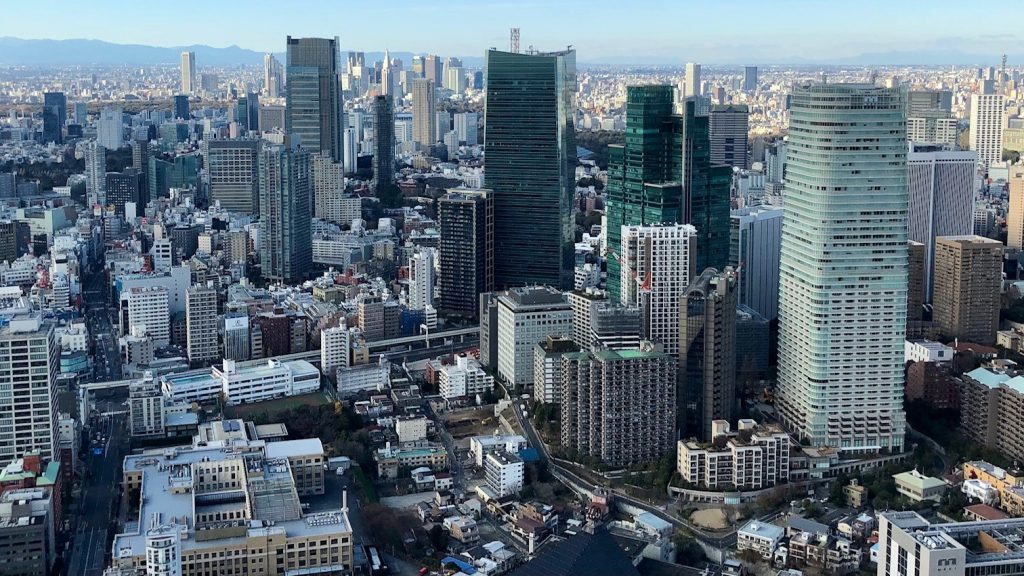 In response to the evolving environmental and social landscapes, the Tokyo Metropolitan Government (TMG) has embarked on a comprehensive set of initiatives known as Tokyo Green Biz. These initiatives are designed to address the pressing issues of rising global temperatures and increasingly severe natural disasters, alongside shifts in societal values and behaviours exacerbated by the global pandemic. Recognizing the urgent need for green spaces, TMG’s strategy focuses on three core principles: protecting, nurturing, and utilizing greenery.
In response to the evolving environmental and social landscapes, the Tokyo Metropolitan Government (TMG) has embarked on a comprehensive set of initiatives known as Tokyo Green Biz. These initiatives are designed to address the pressing issues of rising global temperatures and increasingly severe natural disasters, alongside shifts in societal values and behaviours exacerbated by the global pandemic. Recognizing the urgent need for green spaces, TMG’s strategy focuses on three core principles: protecting, nurturing, and utilizing greenery.
- The Changing Role of Greenery
The functions of urban areas and the values of their inhabitants are changing significantly due to the evolving conditions surrounding greenery. Global warming poses a substantial challenge, with rising temperatures leading to more frequent and intense natural disasters. As a result, cities worldwide, including Tokyo, must find ways to mitigate these issues by integrating more green spaces into their urban planning. Moreover, the COVID-19 pandemic has highlighted the necessity for ample green spaces as people increasingly seek outdoor areas for recreation and mental well-being.
- The Tokyo Green Biz Approach
To tackle these multifaceted issues, TMG has launched the Tokyo Green Biz project, a series of green initiatives that involve collaboration with various stakeholders, including local communities, businesses, and environmental organizations. The overarching goal is to create a sustainable and resilient urban environment by focusing on the protection, nurturing, and utilization of greenery.
- Protecting Green Spaces
Protecting existing green spaces is the cornerstone of TMG’s initiatives. This involves preserving areas with rich natural environments that provide crucial ecological benefits. For example, TMG has designated 50 areas as protected green zones. These areas are carefully managed to maintain their natural biodiversity and prevent urban encroachment, ensuring that they continue to serve as vital green lungs for the city.
- Nurturing Greenery
Nurturing greenery involves activities aimed at enhancing and expanding urban green spaces. TMG’s initiatives under this principle include various community-based projects that encourage local participation in green activities. Although specific examples of nurturing projects are not detailed in the available presentation notes, such initiatives typically involve tree planting programs, the creation of community gardens, and educational campaigns to raise awareness about the importance of greenery in urban settings.
- Utilizing Greenery
Utilizing greenery in innovative ways is another critical aspect of the Tokyo Green Biz initiatives. TMG promotes the construction of rain gardens, the installation of rooftop gardens, and the integration of green walls on buildings. These measures not only enhance the aesthetic appeal of urban areas but also offer practical environmental benefits. For instance, rain gardens help manage stormwater runoff, reducing the risk of flooding during heavy rains. Rooftop and wall greenery contribute to improved air quality, lower urban temperatures, and provide insulation for buildings, which can lead to significant energy savings.
- Collaborative Efforts and Future Goals
The success of the Tokyo Green Biz initiatives relies heavily on the active involvement of various stakeholders. By fostering partnerships with businesses, non-profit organizations, and residents, TMG aims to create a collective movement towards a greener and more sustainable Tokyo. Future goals include expanding the number of protected green areas, increasing urban greenery coverage, and developing new technologies and methods for integrating green spaces into the city’s infrastructure.
In conclusion, TMG’s Tokyo Green Biz initiatives represent a forward-thinking approach to urban environmental management. By focusing on protecting, nurturing, and utilizing greenery, TMG aims to address the challenges posed by climate change, natural disasters, and societal shifts, ultimately creating a healthier, more resilient, and more sustainable urban environment for all.

